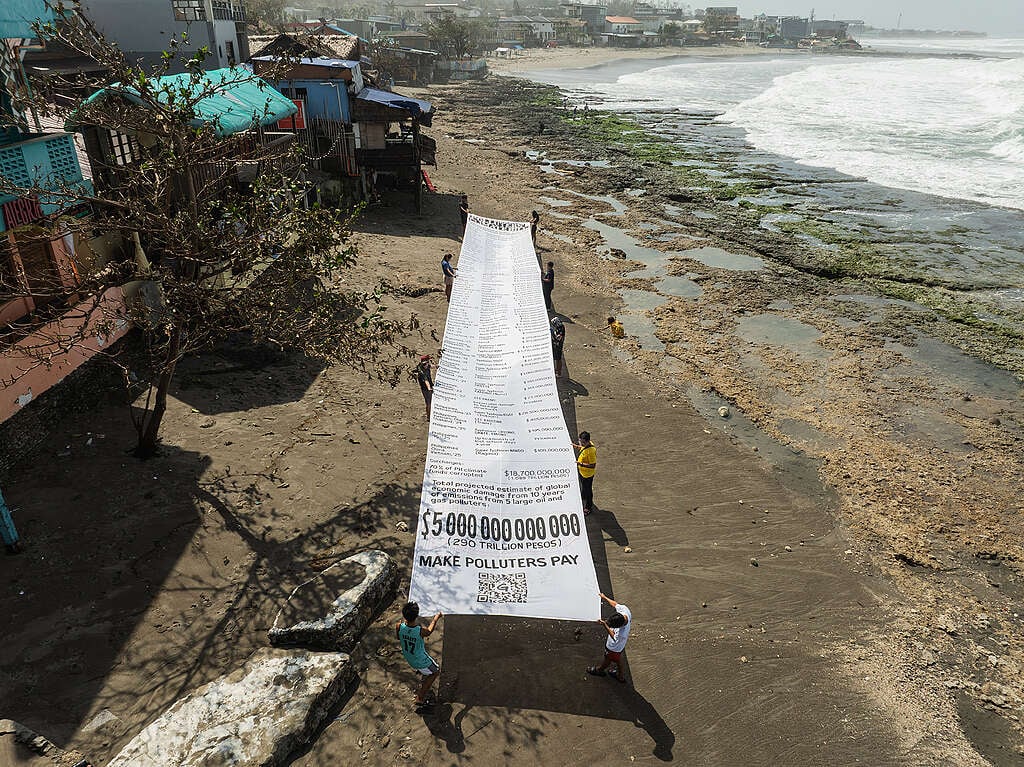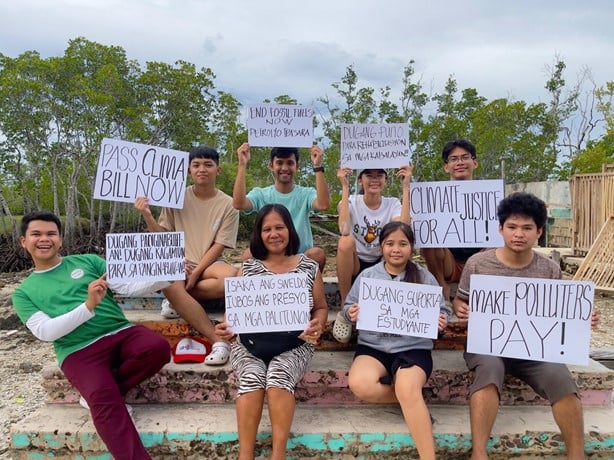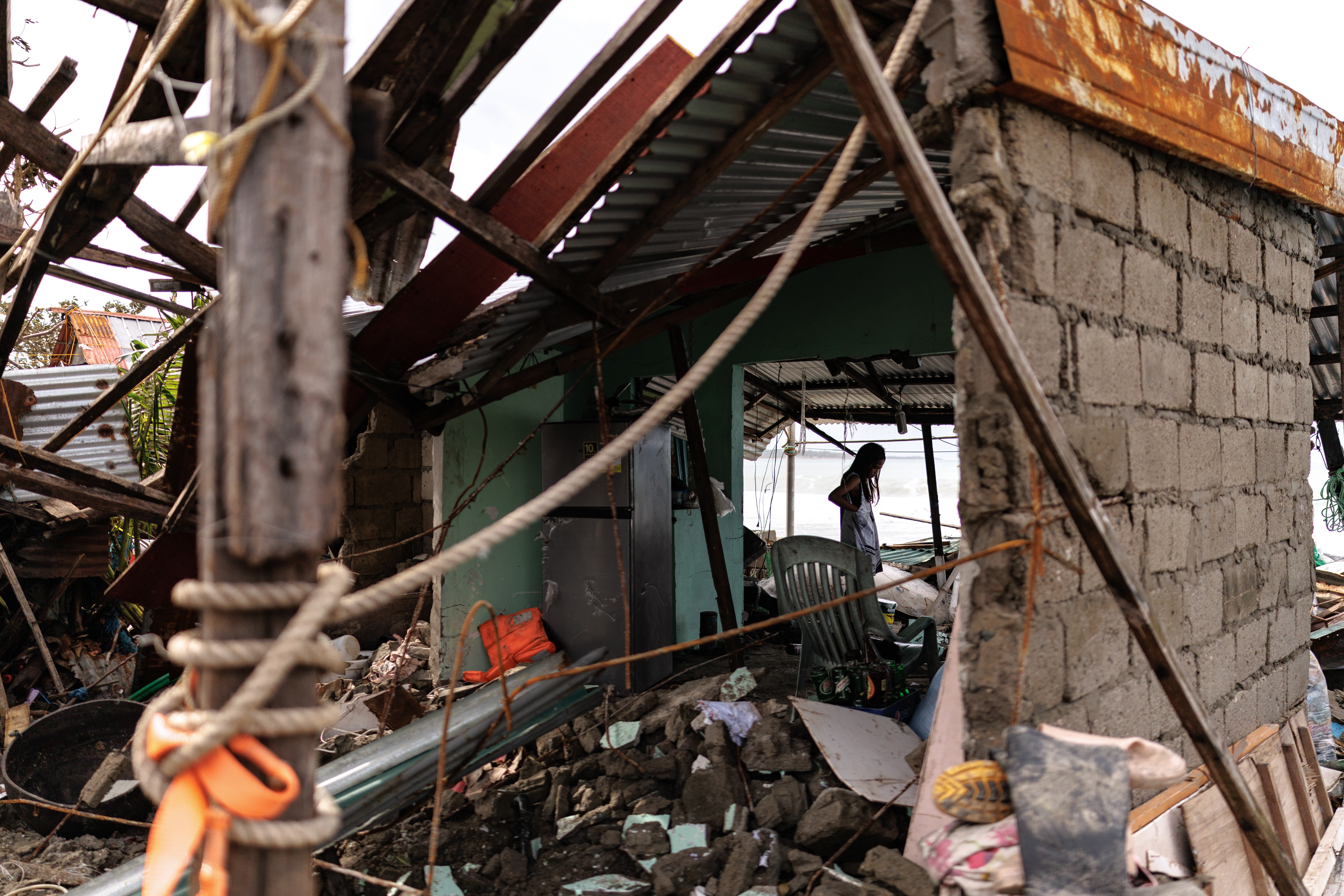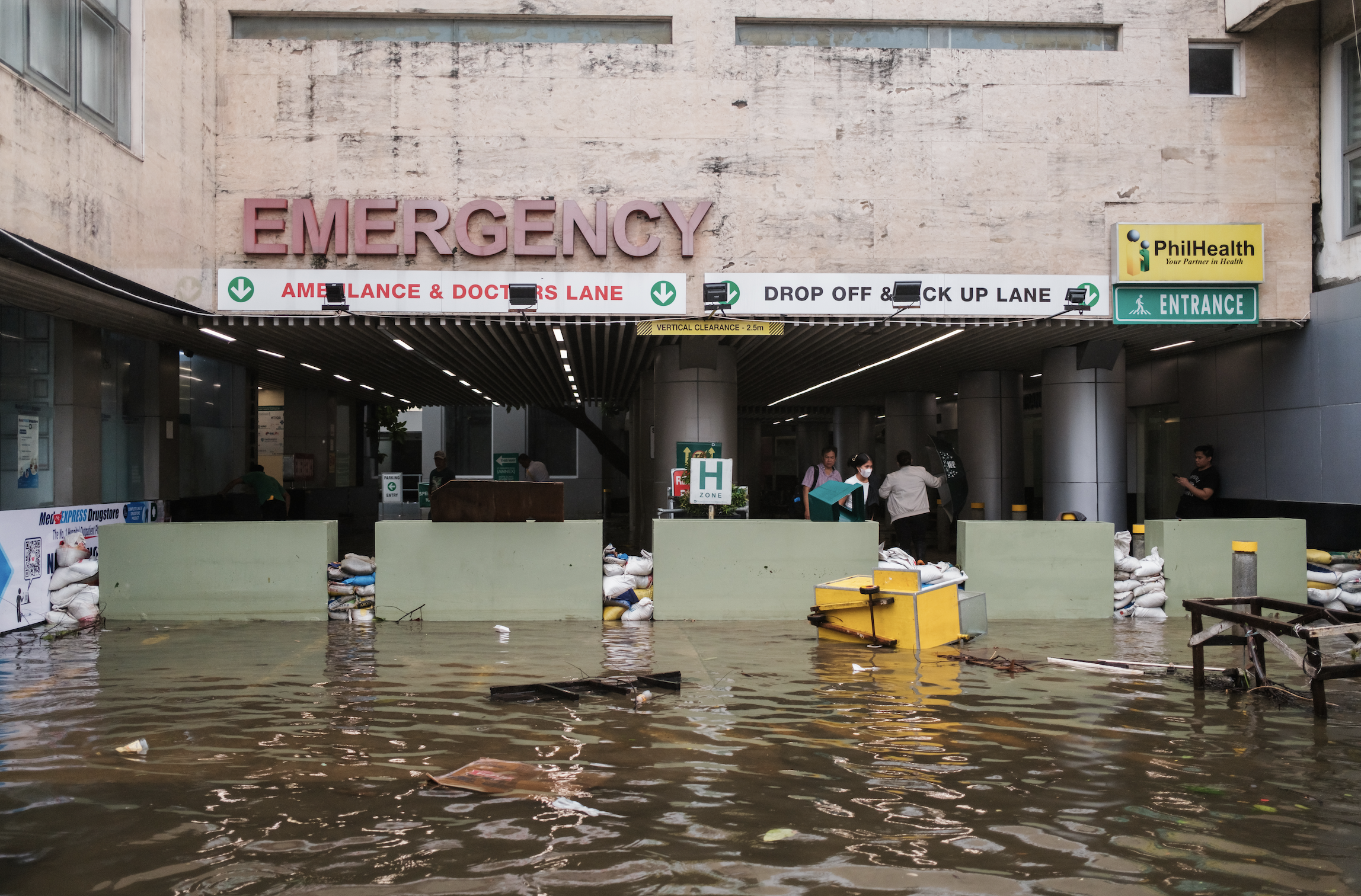
12 November 2025, Quezon City — Greenpeace Philippines said the country’s continued placement among the world’s most climate-vulnerable nations underscores how Filipinos are paying the highest price for the crisis, even as those most responsible for climate change evade accountability. The Philippines ranked 7th in Germanwatch’s Climate Risk Index1, and once again 1st in the World Risk Index2, reflecting how millions remain at risk from worsening typhoons, floods, and other hazards.
According to the report, the country’s high ranking was influenced by the size of the affected population and the extent of substantial economic losses caused by extreme weather. Human-induced climate change increased the average intensity of these storms in the Philippines by around 7.2 km/hr and boosted the frequency of storms such as Carina by 30%, while also intensifying heat waves by about 1.2°C. The report was published as Filipinos are still reeling from Typhoon Tino3 and Super Typhoon Uwan,4 which has since claimed over 220 lives.
Greenpeace Philippines Senior Campaigner Virginia Benosa-Llorin said:
“Year after year, the Philippines lands on the top of global climate risk lists. And year after year, nothing changes. ‘Resilience’ has become the excuse for inaction. Our people have paid with their homes, their health, and their lives, while those most responsible for the crisis profit and pollute with impunity.
“Between 1995 and 2024, the Philippines recorded USD 35 billion in documented economic damage,1 but that staggering amount does not even capture the non-economic losses Filipino communities have endured for decades. These are the invisible costs that never make it to official reports: the pain of losing a loved one, a livelihood, or a future.
“It’s getting worse. In the span of days, Tino and Uwan’s recent casualties show the same disturbing pattern: disaster, loss and damage, a long recovery, then disaster again. And all this while billions meant for flood control and climate protections are lost to corruption. The government should really be ashamed due to its lack of action amid a huge corruption scandal. The government’s response must match the scale and speed of risk.
“At COP30, rich nations must urgently fill the Loss and Damage Fund with grant-based finance that reaches communities fast. World leaders must also make carbon majors pay, because their decades of pollution have pushed vulnerable countries like ours to the brink. Here at home, the government should prioritize the CLIMA Bill to hold polluters accountable, protect and audit climate and flood-control budgets, and fast-track community-led resilience—from mangroves and reefs to early warning and safe evacuation—while stopping any new fossil expansion. Choose people over profit. Make polluters pay.”
###
Photos of La Union photo-ops HERE
Video of clip reel HERE
Access all photos and videos of Super Typhoon Uwan HERE (https://act.gp/uwan2025)
IN THE PHOTO:
In San Juan, La Union where a storm surge linked to Super Typhoon Uwan recently affected coastal communities, Greenpeace Philippines activists and climate survivors unfurled a massive “polluter’s climate bill” with a total of five trillion dollars, a partial accounting of the estimated loss and damage cost caused by the emissions of just the top five investor-owned oil and gas companies since 2015 (the year of the Paris Agreement).5 The action highlighted the growing losses faced by local communities due to the worsening climate crisis. The groups urged world leaders and the Philippine delegation at the UN Climate Change Conference (COP30) in Belém, Brazil to ensure that funds for loss and damage reach those most affected—and that the biggest climate polluters, not the people, pay for the cost of the climate crisis.
Note to the editor:
[2] WorldRiskIndex 2025: Philippines Remains World’s Most At-Risk Country for Disasters
[3] Situational Report No. 23 for the Effects of Tropical Cyclone TINO (2025)
[4] Situational Report No. 12 for the Effects of TC UWAN (2025)
For more information, contact:
James Relativo, Greenpeace Communications Campaigner
[email protected] | +63 919 069 3424 (SMART) | +63 960 480 0297 (Viber & WhatsApp)



